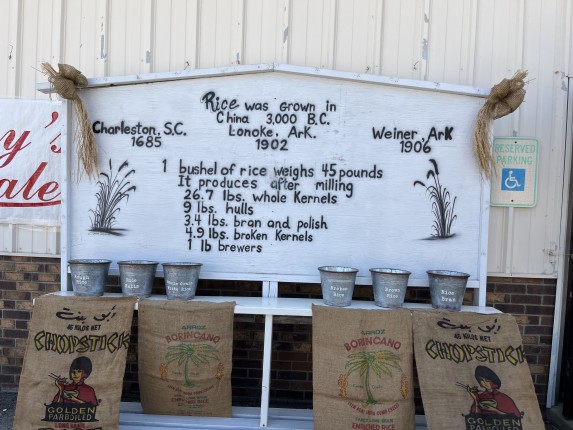-
New Security Broadcast | US Climate Envoy John Kerry on the Importance of Our Oceans
› It is fully within our power to guarantee a healthy ocean and protect it for the future, says Special Presidential Envoy for Climate John Kerry in today’s episode of the New Security Broadcast. Kerry spoke at a recent Wilson Center event hosted in partnership with the Embassy of Panama to spotlight the 8th Our Oceans Conference, scheduled to take place in March in Panama. In his remarks, Kerry emphasized the vital role the ocean plays in supporting global food security and economic prosperity as well as the imperative to take action to protect the ocean from climate change.
It is fully within our power to guarantee a healthy ocean and protect it for the future, says Special Presidential Envoy for Climate John Kerry in today’s episode of the New Security Broadcast. Kerry spoke at a recent Wilson Center event hosted in partnership with the Embassy of Panama to spotlight the 8th Our Oceans Conference, scheduled to take place in March in Panama. In his remarks, Kerry emphasized the vital role the ocean plays in supporting global food security and economic prosperity as well as the imperative to take action to protect the ocean from climate change. -
Rice: A Recipe for Greenhouse Gas Emissions in the U. S. and China?
›Go to the Arkansas Rice Festival in Wiener, Arkansas and you will discover how delicious – and diversely flavored – this cereal grain can be. Savory, sweet, or even spicy: Each dish at the festival’s annual rice recipe contest shows the many ways to prepare this international food staple.
Why look to Arkansas for rice? The state produces 4 million tons of it every year, which is nearly half the rice grown in the United States. But that U.S. annual total is dwarfed by the amount produced by China, which at 207 million tons is the world’s largest rice producer. It’s also natural that the world looks to China for rice; genomic mapping has suggested that cultivated rice was first grown in the Pearl River valley in southern China.
-
Water at COP27: Hydrating Climate Policy Negotiations in the Desert
›
Is water important in climate policy? It seems obvious. Water has a well-established link as the medium of most negative climate impacts. Yet when it comes to addressing the climate crisis, the answer depends very much on who you ask.
-
What Can California Teach the Federal Government on Air Pollution? A Conversation With Richard Corey
› In August 2022, California’s Air Resources Board (CARB) announced a new regulation requiring all new vehicles sold in California to be zero emission by 2035, paving the way for an emission-free future. But what exactly is CARB—and why do its decisions carry such weight? To answer those questions and more, the Wilson Center’s Environmental Change and Security Program partnered with Climate Break (with support from the Henry M. Jackson Foundation) for a joint podcast featuring CARB’s former Executive Officer, Richard Corey. The conversation ranged from the agency’s history, to what Corey has learned about how to implement effective policy, and his view of lessons for the federal government as it moves more aggressively on climate action.
In August 2022, California’s Air Resources Board (CARB) announced a new regulation requiring all new vehicles sold in California to be zero emission by 2035, paving the way for an emission-free future. But what exactly is CARB—and why do its decisions carry such weight? To answer those questions and more, the Wilson Center’s Environmental Change and Security Program partnered with Climate Break (with support from the Henry M. Jackson Foundation) for a joint podcast featuring CARB’s former Executive Officer, Richard Corey. The conversation ranged from the agency’s history, to what Corey has learned about how to implement effective policy, and his view of lessons for the federal government as it moves more aggressively on climate action. -
Media and Climate Security: Mutual Miscomprehension?
›
There’s a scene near the climax of Agatha Christie’s Murder on the Orient Express when Hercule Poirot starts to plot out the possible murderers. There’s Colonel Arbuthnot, who had opportunity and motive. There’s Mr. McQueen, suspicious in his transparent attempts to misdirect the detective. There’s even the haughty, toad-faced Princess Dragomiroff. Like practically everyone on the train, she had good reason to wish the evil Ratchett dead.
-
COP27: Growing Roles for Agriculture and Food Security
›
Every year, more than two billion farmers around the world work the land day in and day out to earn a living and produce what is needed to feed and clothe an ever-growing global population that reached 8 billion in November 2022. Though they bear the brunt of climate change on the front lines, many of the world’s farmers, ranchers and fishers are unaware of the international processes that affect their livelihoods.
-
COP27 in Egypt: Putting Human Rights on the Climate Agenda
›
Cairo hoped that COP27 would focus on its stated agenda: climate change adaptation. Yet it was human rights concerns—such as jailed pro-democracy activist Alaa Abdel Fattah’s hunger strike and rumors of restricted internet access to human rights platforms—that often stole headlines from climate policy or funding pledges. The persistence of human rights coverage demonstrated that Egypt and many other governments fail to recognize that strong governance, human rights protections, and climate change adaptation are mutually reinforcing and have overlapping policy actions.
-
Meeting the Global Energy Transition: A Conversation with Jonathan Pershing
›
“Things that we used to think were 20 or 30 years into the future are in fact happening today… Climate change is noticeably changing the extent, the severity, and the frequency of these kinds of events.”
This stark assessment from Jonathan Pershing, Program Director of Environment at the William and Flora Hewlett Foundation, is at the center of a discussion of progress made and needed for international climate commitments, the role of critical minerals in the green energy transition, and climate-related migration trends with ECSP Senior Fellow Sherri Goodman and ECSP Program Associate Amanda King in this week’s episode of New Security Broadcast. Pershing brings a wealth of perspective to the conversation, drawing on his roles formally supporting Special Presidential Envoy for Climate John Kerry, and serving both as a Special Envoy for Climate Change at the U.S. Department of State and lead U.S. negotiator to the U.N. Framework Convention on Climate Change.
Showing posts from category climate.












